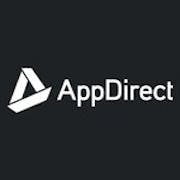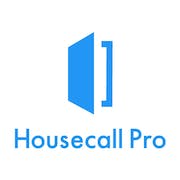Looking for the best recurring billing software? Our comprehensive buyers guide outlines the top features and ease-of-use helping you find the perfect solution for your needs.
As a modern business owner, you understand the value of recurring revenue streams. But managing subscription billing and invoicing can be a time-consuming and tedious task. That's where recurring billing software comes in. Automated dunning can recover 1%-5% of a business’s recurring revenue leakage by reducing involuntary churn. This powerful tool automates nearly every aspect of subscription billing, so you can focus on growing your business and increasing your bottom line. But with a wide range of options on the market, choosing the right one can be overwhelming. Don't worry, though - we're here to help. In this buyer's guide, we'll walk you through everything you need to know to make your buying decision easier.
What is recurring billing software?
This is a powerful tool that streamlines the billing process for businesses that regularly charge customers or clients. It automates the billing process, making it simpler and more efficient, and reducing the need for manual control. By using a billing tool, businesses can offer a seamless and convenient payment experience to their customers.
There are several common use cases of this technology which include:
- Subscription-based companies: Recurring billing software is a must-have for businesses offering subscription-based services such as e-learning platforms, SaaS products, and media streaming platforms. These businesses often charge their customers on a recurring basis, and the solution automates this process, saving time and effort.
- Professional service providers: Many professional service providers, such as lawyers, accountants, and marketing agencies, use a recurring billing tool to automate their billing processes. The program helps these businesses to streamline their operations, reduce billing errors, and improve customer experiences.
- E-commerce companies: E-commerce businesses often use this platform for order-processing and to charge customers for recurring services such as monthly subscription boxes and SaaS products.
- Small and medium-sized businesses (SMBs): Such companies benefit from this essential tool as it helps them manage their billing processes, automate payments, and reduce costs associated with manual processing.
- Independent contractors and freelancers: It is also used by freelancers and independent contractors to bill their clients for projects in a timely and consistent manner.
- Large corporations: Large corporations leverage recurring billing technology to automate their billing processes and scale their services.
Recurring billing software is an increasingly essential tool that can help businesses automate their billing processes, reduce manual errors, and improve customer satisfaction. While it serves multiple industries, businesses offering subscription-based services, professional service providers, and e-commerce companies benefit the most from its use.
What benefits does a recurring billing solution come with?
This powerful software solution can help companies automate their billing process, making it easier to manage their finances and reduce the time spent on tedious manual tasks. Here are some key benefits of this type of solution that make it an essential tool:
- Streamlined billing: With recurring billing software, businesses can automate their billing process, which saves time and reduces the chances of errors. It makes it much easier for companies to bill their clients in a timely and efficient manner, which can ultimately help improve cash flow.
- Improved client management: It makes it easier to manage client information, including payment details and billing history. This, in turn, can help businesses improve customer service and build stronger, longer-lasting relationships with their clients.
- Enhanced financial reporting: The system can provide businesses with real-time reports on their financial status, including information on revenue, expenses, and cash flow. It can also help businesses make better-informed decisions about their finances and plan for the future.
- Increased flexibility: By automating their billing process, businesses can offer their clients more flexible payment options, such as recurring payments, installment plans, and payment schedules. This can improve customer satisfaction and ultimately lead to stronger customer retention rates.
- Better security: A recurring billing package uses encryption and secure storage to protect sensitive financial information, which reduces the risk of fraudulent activity and data breaches. This can help businesses maintain their clients' trust and avoid costly legal disputes.
10 key features of recurring billing software
Modern recurring billing software is packed with features that make it a valuable investment for businesses of all sizes. In this section, we will highlight 10 of its common features.
1. Subscription management:
It enables businesses to manage subscriptions and recurring payments easily. This feature allows businesses to create and configure subscription plans, manage customer data, and automate billing and invoicing.
2. Payment gateway Integration:
This is a crucial feature that allows businesses to securely collect payments from customers through credit card, debit card, and other online payment methods, without the need for a separate payment gateway.
3. Invoicing:
It automates the invoicing process, generating and sending invoices to customers as per their subscription plans. This feature sends reminders to customers on their upcoming payments, helping businesses to reduce payment delays and improve cash flow management.
4. Customizable billing:
Many recurring billing software solutions offer businesses the flexibility to customize the billing process. This function allows businesses to configure the billing cycle, choose pricing models, set up discounts or promotions, and add tax rates.
5. Analytics and reporting:
Analytics and reporting provide businesses with insights into their subscription and billing models. This feature helps businesses to track customer data, revenue, payment trends, and other key performance metrics.
6. Integration with third-party tools:
A recurring billing application can integrate with other business tools, such as CRM systems, accounting software, and marketing automation platforms. Having this feature allows businesses to streamline their business operations and enhance their customer experience.
7. Security:
Security is also a crucial feature that ensures that customers' data is secure, and businesses remain compliant with industry regulations. Advanced security features, such as encryption, authentication, and fraud detection, are critical in ensuring data security.
8. Self-service portal:
A self-service portal is a feature that allows customers to manage their subscriptions and payments. It allows customers to update their payment information, manage subscription plans, view billing history, and request support.
9. Mobile compatibility:
With the rise of mobile devices, recurring billing software has evolved to offer mobile compatibility. This element allows businesses to manage their billing operations from anywhere, anytime, and any device.
10. Customer support:
Finally, most solutions offer customer support. This feature helps businesses to resolve billing issues and provide timely support to their customers. The ability to access expert advice and technical support is particularly valuable for businesses that rely on recurring revenue models for growth.
What to consider when implementing a recurring billing system?
Recurring billing is a vital component of the modern business landscape, particularly for companies that rely on a subscription-based revenue model. Automating recurring billing can save time, improve accuracy, and provide customers with a seamless experience. With the multitude of software options available in the market, it can be overwhelming to determine which one is right for your business. Here are some essential factors to consider when choosing one:
- Features: The features offered by a solution are critical to your business. Evaluate your business needs and ensure that the application provides features such as flexible payment options, customizable billing frequencies, and the ability to handle proration.
- Integration: A good recurring billing platform should integrate seamlessly with your existing systems, such as CRM, accounting, and payment gateways. Ensure that you select one that can connect with other systems you use to streamline your billing processes.
- Security: Security should always be a top priority when choosing a billing program for your business. Look for one that offers secure encryption, PCI compliance, and other security measures to protect your sensitive data from cyber threats.
- User experience: The user experience is equally crucial to ensure that the app is easy to navigate, and all the functions are intuitive. The software needs to be accessible, user-friendly, and have a clean interface.
- Support & customer service: Technical issues can arise at any point and can be disruptive to the operation of your business. Ensure you choose a system that has a robust support system in place. Pick providers that offer customer support with fast response times and multiple channels of communication, such as phone, email, and chat.
- Pricing: Lastly, pricing is a critical consideration. Many software providers offer different pricing options based on the features and the number of users. Choose a tool that aligns with your budget and offers value for your money.
Market trends for recurring billing software
As more businesses shift towards subscription-based models, recurring billing technology is becoming increasingly important. According to Facts and Factors, the global recurring billing software market size was worth around USD 4521.35 million in 2021 and is predicted to grow to around USD 10896.61 million by 2028 with a compound annual growth rate (CAGR) of roughly 13.39% between now and 2028. In 2024 and beyond, businesses can expect to see continued growth and evolution in this industry. Here are the biggest trends to look out for in this area:
1. Greater automation
Automation is already playing a huge role in the recurring billing software industry, and this trend is set to continue. In the coming years, we can expect to see even more automation, including automated invoice generation, payment collection, and subscription cancellation.
2. AI and machine learning
Artificial intelligence (AI) and machine learning are rapidly transforming the world of recurring billing. In the future, AI will be used to analyze customer data, optimize pricing, and predict which customers are most likely to churn.
3. Improved security
As the number of businesses using this tool grows, so too does the risk of breaches and other security issues. In response, software providers are investing in stronger security measures, such as two-factor authentication and advanced encryption techniques.
4. Enhanced customer experiences
This billing platform is no longer just about processing payments. It's increasingly being used to drive customer engagement and loyalty. In the coming years, expect to see more recurring billing software providers offering features such as personalized pricing plans, customer self-service portals, and targeting customer-friendly communications.
5. Increased integration
Recurring billing is just one part of a modern business's tech stack. In response, many recurrent billing providers are investing in integration with other business systems, such as CRM, accounting software, and e-commerce platforms.
Conclusion
In conclusion, investing in recurring billing software is a strategic move that can significantly enhance operational efficiency, customer satisfaction, and financial performance. By automating billing processes, providing detailed insights, and ensuring compliance, this solution empowers businesses to focus on growth and innovation while enhancing their billing and subscription management capabilities. Make an informed decision by thoroughly assessing your options and choosing a package that aligns with your business goals and requirements. The right one will also contribute to the long-term success and profitability of your business and by staying up-to-date on these trends, businesses can ensure that they're equipped to succeed in a rapidly changing environment.








